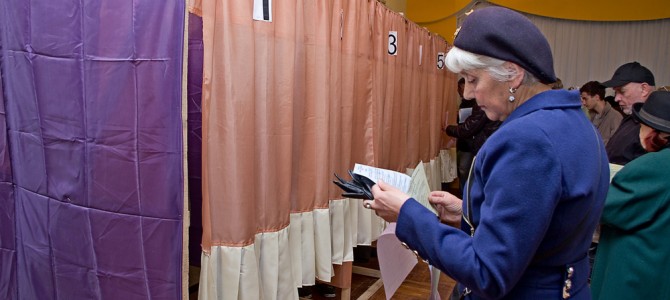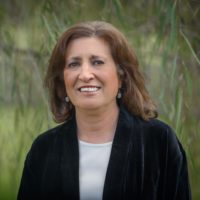
“There are 14,000 school divisions in the United States of America. What about the 90,000 other school board members? Do I have a right to run this school division as a locally elected official under the Virginia Constitution by the people who elected me? The federal government is telling me: ‘No!’”—Elizabeth Schultz, Fairfax County school board member
There will be local elections throughout the nation next week. Please, folks, pay attention and vote, because these elections are about the very survival of local self-governance. They are at least as consequential as anything on the national stage, and probably more so.
Consider the following. When the school board of Fairfax County, Virginia, was set to vote on promoting the ideology of transgenderism in the schools last May, parents and citizens showed up in droves. They loudly protested the predictable outcomes of the move, which masqueraded as an anti-discrimination policy.
Such outcomes include abolishing children’s privacy in bathrooms and locker rooms and abolishing girls’ sports, which would be open to any male who claims to perceive himself as female. So the Fairfax County Public School (FCPS) policy also violates both the letter and spirit of Title IX. It also serves to divide and conquer families because it requires all students to openly reject anything they learned from their parents about human sexuality and human dignity that school bureaucrats deem in conflict with the policy.
You can watch the whole three-hour-plus meeting on YouTube. (At 1:12:50 you can see the compelling eight-minute speech by the only wide-awake member of the board, Elizabeth Schultz, quoted above.)
It was a total ambush. The board voted 10-1 with one abstention to shove the policy down the throats of startled parents. There was no discussion and no consideration given to the concerns expressed. Instead, the parents were in effect smeared as intolerant bigots.
The ten board members voting in compliance with this federal harassment behaved like a bunch of cronies who seemed most interested in securing their places of privilege in a coming nomenklatura by regurgitating Orwellian-style talking points about “equality” and “non-discrimination.”
Cover-ups Always Come with Corruption and Power-Mongering
After being railroaded and stonewalled by FCPS members, parents and citizens immediately filed several Freedom of Information Act (FOIA) requests this May to find out what was going on behind the scenes. Communications from on high obviously set this whole thing in motion. So who was accountable and who said what to whom? What the hell was going on? Fair questions.
We do know the Obama administration has reinterpreted Title IX to include gender identity. Then Virginia Attorney General Mark Herring issued a legal opinion declaring that gender identity could be included in FCPS policy without any input from the state legislature. Within hours of that statement, the chief LGBT activist on the FCPS board, Ryan McElveen, set it all in motion. There can be no clearer picture of state and local functionaries acting as cogs in the federal machine. In essence, this is all about the centralization of power, certainly not about the rights of children, transgender or otherwise.
The school board is of course loath to uncover any of the communications, despite the fact that its county directs public agencies to provide requested FOIA records “within five working days after a request is received,” or explain why the records aren’t being provided.
But it looks like Fairfax County officials think citizens have no right to know anything about the future of their schools and their children. Well over five months have passed since the FOIA requests were filed, and the school board has been completely intransigent and non-transparent about their back-room dealings. Clearly, the cronies on the board hope and expect their evasions will buy them re-election this Tuesday, November 3.
Who Elects Such Corrupt People?
All too often our local officials are elected by default. There is high turnout by insiders, and particularly organized get-out-the-vote efforts by teachers’ unions and others with power stakes in the local machines. On election days in Montgomery County, Maryland, I always saw lackeys of the teachers’ union out in force at polling places, passing out their endorsements on the “apple ballot.”
Conversely—and ironically—there is much lower turnout by ordinary citizens whose lives the elections most affect. And turnout in local elections has actually been plummeting, according to some recent research.
We’ve all heard how important local elections are to our lives. We are reminded from time to time, but we easily forget. According to a Times of Trenton editorial, school-board elections average only 15 percent turnout in New Jersey. Even when local elections are down-ballot from a higher-profile election, many voters just don’t bother finding out about the people behind the names. Especially when the election is nonpartisan—as school board elections generally are—many don’t bother voting local at all.
We tend not to pay attention even though many of us may intuitively understand that the decisions of our local officials have a far more direct impact on our lives than those of a federal government that can keep its distance. The trick is to keep local power local, and that means paying attention to who’s minding the store locally.
Such decisions affect issues like: road conditions, “gun-free zones,” school funding, property taxes, transgender bathrooms, equipping and staffing our police and fire departments, neighborhood and commercial zoning, K-12 sex education, community noise ordinances, access to utilities, construction projects, leash laws, and so on.
So what gives? Why do so many people seem not to care who local candidates are given the effects on their lives? Do they assume those names are simply a little army of good citizen brownies who will make sure their interests on the local level are met? Do they likewise trust the unknowns who are running for seats on local party committees? Do they think the top of the ballot is all that really matters, and the bottom is all just local yokel stuff? Or is it just too much work to Google a candidate’s name and do a bit of homework?
Whatever the reasons for ignoring the local ballot, they are all wrong. In many ways, I think the national stage is illusory, or at the very least incomplete and part of a much more complicated context. We ignore the local stage at our own peril.
The Top of the Ballot Is Downstream from the Bottom
The late Andrew Breitbart famously announced that “politics is downstream from culture.” Let’s consider a corollary that goes like this: Who wins at the top of the ballot is downstream from who wins at the bottom of the ballot. It’s not an exact science, to be sure. But blue states become blue primarily through the inner workings and well-oiled coordination of their local machines—New York, Illinois, California, Maryland, Massachusetts.
(I view the occasional Republican governor in such places as exceptions to this rule. I suspect they happen primarily as a result of economic “corrections” to the hemorrhaging brought on by the fiscal excesses of their predecessors. Since they generally appease the abortion and LGBT lobbies, they leave both Breitbart’s maxim and my corollary intact.)
Furthermore, in some state primaries, you may even have the opportunity to vote for the members of your political party committees. These are the folks who organize your party at the local and state levels and recruit candidates for office. In 2006 I was amazed at the ease with which I could simply run (unopposed, as it turned out) in the gubernatorial primary and get a seat on the Maryland GOP Central Committee. For better or for worse, these people make a difference. Local parties provide essential inputs—ideas, attitudes, angles—that can shape the platforms and groom candidates for local, state, and national offices.
The folks elected to the party committees at the local level in turn elect the state’s national committee members. (For Republicans, each state and territory has three members, for a total of 168.) Many delegates who vote at national conventions come from this pool. They also weigh in on the party’s platform. So it’s a consequential vote if you have any concerns with how your party is operating.
But if localities are allowed to become corrupt—through benign neglect by voters or otherwise—it lays the foundation for corruption at higher levels. If you are not interested in who’s running your local party apparatus, you’re likely to end up with a stagnant, inbred, and disorganized political party with fewer solid candidates running for office. This opens the door for the opposition to run unopposed in more and more races.
Local Awareness Provides Essential Protection from Centralized Power
This phenomenon plays itself out in the choices up-ballot. Lest we forget, power corrupts. The federal government has ever more power and is further removed from immediate controls by its citizens. Local governments—the men and women at the bottom of the ballot—can and should be (and were intended by the Framers to be) a bulwark against unchecked power of the national government.
The catastrophic failure of governance in Washington is a persuasive argument that you’ll get more responsive government at the ground floor. When informed citizens of goodwill vote en masse locally, they can provide an effective check on corruption and force government to be more responsive to its citizens. This kind of citizen activism serves as a buffer that can prevent state and federal governments from absorbing local governments.
As we’ve seen from the Fairfax County case, our distraction from local elections and neglect of local politics is fertile ground for growing laws under the radar on issues that have not been debated or thought through.
More than ever, we need to push back against the use of local elections as a back door to enforcing agendas established by central, national, or even international agendas. (The latter include various and sundry power grabs currently masquerading in localities around the nation and world as something the United Nations calls “sustainable development.”) Implementation of it all depends upon electing compliant local officials.
In the end, we should have known that the phrase “think globally, act locally” is a double-edged sword. If only people of goodwill took it to heart with the same intensity as power-mongers do.







